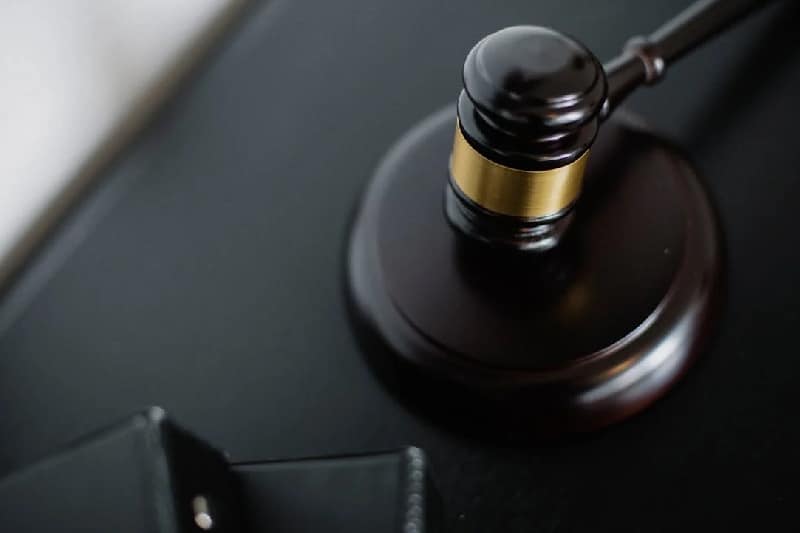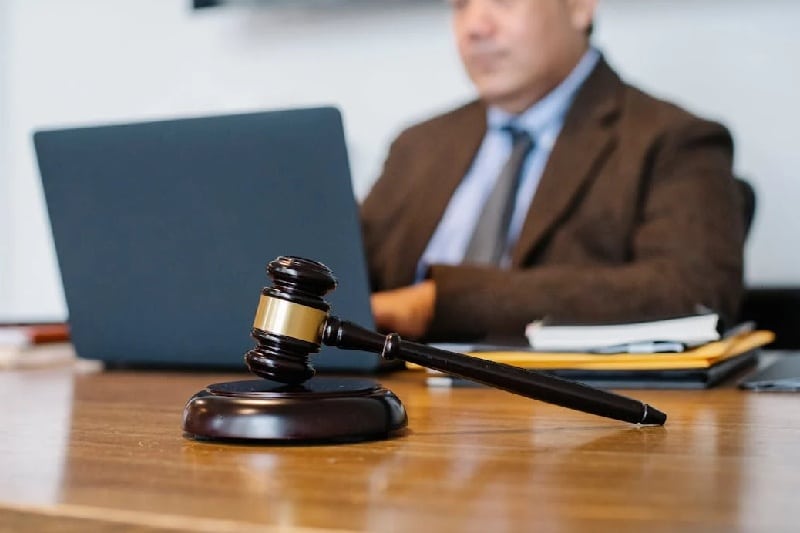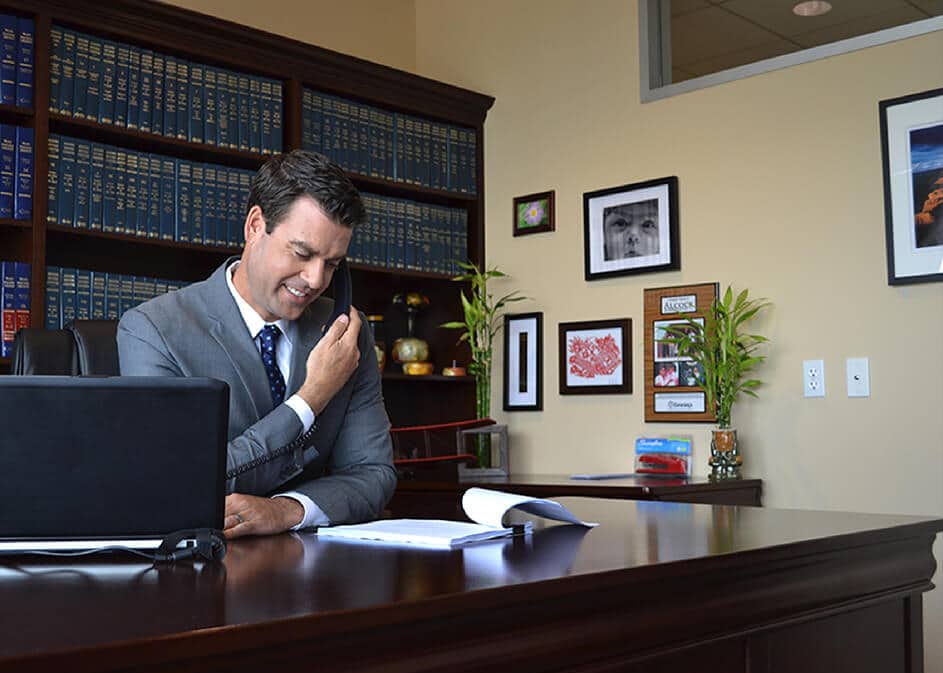How Sentencing Works: An Overview of the Sentencing Guidelines in Arizona
As a criminal defense attorney, I often get questions about how sentencing works in Arizona. Most people are surprised by my answers. This guide will provide you with a comprehensive understanding of the sentencing guidelines in Arizona. However, note that every court in Arizona operates differently.
What Happens at a Sentencing?
Sentencing is a crucial stage in the criminal justice process. It determines the punishment for a defendant who has been found guilty. Sentencing can occur in different ways: the defendant can plead guilty, be found guilty at trial, or negotiate a plea bargain agreement with the prosecutor.
The Arizona Sentencing Chart
The Arizona sentencing chart, also known as the Arizona Sentencing Grid, is a tool used by judges to determine the appropriate punishment for criminal offenses. It provides a framework that considers not just the severity of the crime but also the criminal history of the defendant to guide decisions. The grid categorizes offenses based on their severity and assigns corresponding ranges for punishment. Factors such as aggravating and mitigating circumstances may also influence the final outcome within the prescribed range. The Arizona Sentencing Grid helps ensure consistency and fairness in decisions across different cases and jurisdictions within the state.
Factors That Influence Sentencing in Arizona

Several factors influence the judge’s decision during sentencing. These factors ensure that the punishment fits both the crime and the individual circumstances of the defendant. Key factors include:
Nature and Severity of the Crime: More severe crimes generally result in harsher consequences. Dangerous crimes or those involving significant harm to victims are treated more severely than non-violent offenses.
Criminal History: If the defendant has a history of criminal behavior, he or she is more likely to receive a longer sentence. Repeat offenders are considered a higher risk to the community.
Mitigating and Aggravating Circumstances: Mitigating factors, such as a difficult childhood or genuine remorse, can lead to a lighter punishment. Aggravating circumstances, such as a heinous act or the use of a deadly weapon, can increase the consequences.
Victim Impact: The crime’s impact on the victims can influence the outcome. Judges consider victim statements and the overall harm caused by the defendant’s actions.
Personal Circumstances: The defendant’s personal circumstances, such as family responsibilities, employment status, and physical or mental health issues, can also influence the decision. Judges may consider these factors to determine whether the defendant is likely to rehabilitate.
Types of Sentences
In Arizona, sentences can vary widely based on the crime and the circumstances. Common types of sentences include:
- Incarceration: This involves serving time in a county jail or state prison. The length of incarceration depends on the crime and sentencing guidelines. For a felony conviction, the judge will impose a minimum sentence based on how severe the crime is and if there are any aggravating or mitigating factors.
- Probation: Instead of serving time in jail, the defendant is placed on probation. This allows the defendant to remain in the community while adhering to certain conditions, which may include counseling sessions, regular check-ins with a probation officer, or avoiding contact with certain individuals.
- Fines and Restitution: The court may impose fines as punishment or order restitution to compensate the victims for their losses.
- Community Service: As part of their sentence, the defendant may be required to perform a certain number of hours of community service.
- Rehabilitation Programs: For certain offenses, especially those involving substance abuse, the judge may order the defendant to participate in rehabilitation programs or counseling.
Sentencing Guidelines in Arizona for Misdemeanors and Felonies
The type of crime—whether a misdemeanor or a felony conviction—affects the sentencing process significantly. Misdemeanors typically result in lighter sentences, such as fines, probation, or short-term incarceration in county jail. Felonies, on the other hand, are more serious and carry heavier penalties, including longer prison sentences. Arizona law outlines specific minimum sentences for different classes of felonies, ensuring that serious crimes receive appropriate punishment.
Sentencing for Dangerous Crimes
In dangerous crime cases, particularly those involving a deadly weapon, the sentencing guidelines are stricter. Arizona law mandates harsher penalties for crimes classified as dangerous, reflecting the increased threat to public safety. Judges have less discretion in these cases and must adhere to the statutory minimum sentences set for dangerous offenses.
In most cases, defendants plead guilty through plea agreements, which often result in lighter sentences than those given after a trial verdict. However, understanding the nuances of these agreements and the sentencing process is vital.
Who Makes a Plea Agreement?
Plea agreements play a significant role in the Arizona criminal justice system. Judges do not offer plea deals. If you want a plea agreement, your attorney will negotiate with the prosecutor. Writing to a judge asking for a lenient plea is ineffective because judges cannot offer or alter plea deals without the prosecutor’s consent. Always talk to your criminal defense lawyer before speaking to the judge or prosecutor. Your attorney will guide you through the process and help you negotiate the best possible deal.
Can a Judge Change a Plea Bargain at Sentencing?
Once a plea agreement is in place, the judge has limited options. The judge can either accept or reject the plea agreement. The judge cannot give a sentence lower than what the plea agreement allows without the prosecutor’s consent. If the judge imposes a sentence outside the agreed range, the prosecutor can withdraw the plea agreement and take the case to trial. For example, if your plea deal includes a sentence range of 2 to 4 years, you cannot ask the judge for a 1-year sentence. If the judge gives a 1-year sentence, the prosecutor can void the agreement, forcing a trial.
What Happens at a Plea Sentencing Hearing?

A plea sentencing hearing is a specific court proceeding where the judge determines your sentence based on a plea agreement. The prosecutor and your attorney present the plea agreement to the judge. The judge reviews the agreement and may ask you questions to ensure you understand the terms. If applicable, the victims may provide statements about the impact of the crime. Both your attorney and the prosecutor present arguments for the appropriate sentence within the agreed range. You may have the opportunity to address the court and express remorse or explain your actions. Finally, the judge announces the sentence, which must fall within the plea agreement range. Understanding what happens at a plea sentencing hearing can help you feel more at ease and prepared for the process.
Sentencing After a Plea Bargain
After agreeing to a plea bargain, sentencing is the final step. A probation officer may investigate your background and report to the judge. You, your attorney, and the prosecutor attend the sentencing hearing. The judge considers the pre-sentence report, arguments, and any statements from you or others. The judge then imposes a sentence within the plea agreement’s range. This could include jail time, probation, fines, or other penalties. Adequate preparation, plus a thorough understanding of the process, can help you achieve the best possible outcome.
How Long After Plea Deal is Sentencing?
The timeline between accepting a plea deal and sentencing varies. After a plea deal is reached, the court schedules a sentencing hearing. A probation officer may prepare a pre-sentence report, which includes information about your background and recommendations for sentencing. The waiting period can range from a few weeks to a few months, depending on the court’s schedule and the complexity of your case. During this time, continue to work closely with your attorney to prepare for the hearing.
If You Plead Guilty, Are You Convicted?
Yes, if you plead guilty, you are convicted of the crime. A guilty plea means a conviction on your criminal record. The court proceeds to sentencing based on the plea agreement or other factors. By pleading guilty, you waive certain rights, such as the right to a trial, and accept the legal consequences of the conviction. Pleading guilty is a serious decision with long-term implications, so discuss it thoroughly with your attorney.
Do You Get Sentenced at a Change of Plea Hearing?
A change of plea hearing occurs when you switch your plea from not guilty to guilty as part of a plea agreement. You formally change your plea in front of the judge, who must accept your new plea. Sentencing may occur at the same hearing or be scheduled for a later date. The timing of sentencing after a plea change depends on the court and case specifics. Your attorney will help you navigate this process.
Can You Go to Jail at a Plea Hearing?
Yes, it is possible to go to jail at a plea hearing. In some cases, the judge may immediately sentence the defendant after accepting the plea agreement. Depending on the plea deal and the crime, the judge may order you to start serving your jail sentence right away. If you are out on bail or bond, the judge may revoke it and remand you into custody. Being prepared for this possibility is crucial. Discuss potential outcomes with your attorney beforehand.
The Importance of Family and Community Support
Family and community support can significantly impact the outcome during sentencing. Letters from family and friends vouching for the defendant’s character can influence the judge’s decision.
Having family members present in court to speak on your behalf may influence the decision of the judges and convince them that you deserve a second chance. Judges are more likely to show leniency if they see that you have a solid support network and are committed to making positive changes.
Accepting Responsibility
When you enter a plea agreement, it is crucial to show that you accept responsibility for your actions. If you plead guilty, do not later claim innocence in front of the judge. This can backfire and result in a harsher sentence. Judges want to see that you are genuinely remorseful and willing to change your behavior. If you maintain your innocence, do not plead guilty. Instead, discuss your options with your attorney. Accepting responsibility is a significant factor that judges consider during sentencing. It can make the difference between a lighter and a harsher sentence.
Preparing for Sentencing
Preparation is key to achieving the best possible outcome at sentencing. Share personal stories and details about your life with your attorney. The more they know, the better they can advocate for you. Collect letters from family, friends, and community members who can speak positively about you. Reflect on your actions and think about how you will express your remorse and plans for positive change. Your attorney will use this information to present a compelling case to the judge, highlighting your positive attributes and commitment to rehabilitation.
The Role of A Criminal Defense Lawyer
Navigating the sentencing process in Arizona can be complex and challenging. A good grasp of Arizona sentencing laws and guidelines is crucial for anyone involved with the criminal justice system. From plea agreements to the sentencing hearing, each step requires careful consideration and preparation. Always consult with a reputable criminal defense law firm to ensure you fully understand your options and the potential consequences. With the right support and information, you can navigate the sentencing process more effectively and work towards a more favorable outcome.
At Alcock & Associates, our team of experienced Phoenix attorneys understands the intricacies of Arizona’s sentencing guidelines and laws. With expertise and dedication, we strive to provide personalized, strategic defense for each of our clients. If you’re facing criminal charges in Arizona, don’t hesitate to reach out for a consultation. Let us advocate for your rights and work towards the best possible outcome for your case. Schedule your consultation and take the first step towards protecting your future. Contact us today.

REPRESENTATION YOU DESERVE
Here at Alcock and Associates our team and staff are dedicated to helping and representing YOU. The first step is to understand your case. We will take the time to get to know you and your legal situation so that we are best able to answer all of your questions. After your initial consultation with our attorneys, you will know what you are facing and what can happen to your case.
EVERY CONSULTATION IS COMPLETELY FREE AND COMPLETELY CONFIDENTIAL.
Top Rated Phoenix Attorneys






It is essential that you are aware of our website policies, as they detail how we protect your data and ensure transparency in the use of your information. Please read our Privacy Policy.
